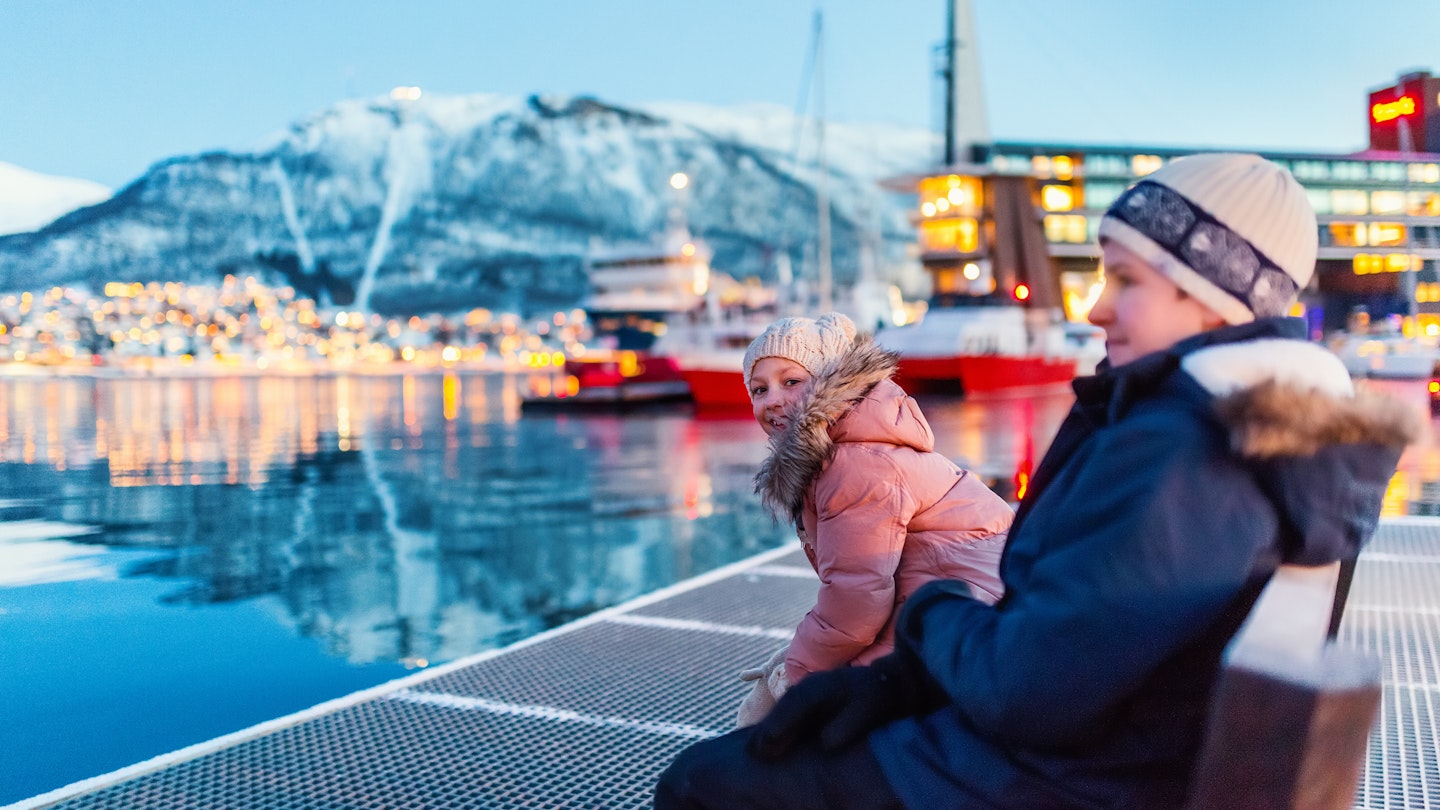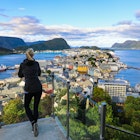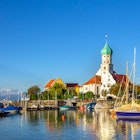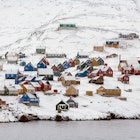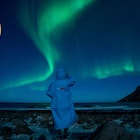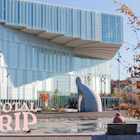Simply put, Norway is spectacular. Along the west coast, shimmering blue fjords carve deep into the interior, with picture-perfect villages hugging the shores and gravity-defying farms clinging to the steep slopes above. Elsewhere, the coastline is less dramatic but still stunning with white-painted towns and countless islands, while interior Norway has some of Europe’s wildest, most beautiful mountains, interspersed with green agricultural valleys and stretches of deep forest.
Almost anywhere you go in Norway you’ll find scenery to take your breath away and abundant activities to inspire you. Here are the best places to visit in 2024.

1. Oslo
Best for museums and architecture
Norway’s energetic, innovative capital boasts top-notch historical and cultural museums, a creative food scene, and cutting-edge architecture such as the striking new Munch Museum and the iconic opera house, designed to resemble a glacier. A stroll along the new waterfront promenade is a great way to get a close-up look at Oslo’s evolving cityscape. And after a year-long renovation the Nobel Peace Center reopened in November 2023.
Planning tip: One of Oslo’s top attractions, the Viking Ship Museum, is closed until 2026, but the Fram Museum is another great ship-centered attraction that tells the fascinating story of Norwegian polar exploration.
2. Lofoten Islands
Best for astonishing Arctic beauty
The Lofoten archipelago is vivid, dramatic, and irresistibly photogenic, with jagged mountains rising from the sea and colorful villages hugging rocky shores that are moss-green in summer and blanketed in pristine snow in winter. Come for the hiking, the kayaking, the arts scene, the history, the wildlife, the seafood, or just to admire the incredible views on this outer edge of northern Norway. In summer, there’s almost endless daylight, while in winter, the aurora borealis often shimmer overhead in undulating waves of green, yellow, red, and purple.

3. Jotunheimen
Best for hiking and trekking
Home to Norway’s 29 highest summits, plus hundreds of other peaks over 2,000 meters, Jotunheimen – whose name means “home of the giants” – is rugged, wild, and an irresistible lure for hikers and climbers. Base yourself in a mountain lodge or cabin and go for day hikes, or embark on a multi-day wilderness trek through incomparable scenery. Much of the region is protected within Jotunheimen National Park, which is within easy reach of the fjord region and several cities.
Planning tip: Join the Norwegian Trekking Association (DNT) for discounts and special access to a large network of staffed lodges and unstaffed cabins throughout Norway, including many in and around Jotunheimen.
4. Sognefjord
Best for stave churches and pretty fjordside villages
The longest and deepest fjord, the Sognefjord carves into the interior from the west coast to the edge of Jotunheimen. Its many scenic arms include the stunning UNESCO–listed Aurlandsfjord and Nærøyfjord. Several of Norway’s 28 surviving medieval stave churches are located around Sognefjord, including two of the most impressive, Urnes and Borgund. Also around the fjord are picturesque villages such as Fjærland, the book town; idyllic Solvorn; Undredal, known for its goat cheese; and Flåm, the lower terminus of the scenic Flåm Railway.
Planning tip: Sightseeing cruises on the UNESCO fjords operate between Flåm and Gudvangen, connecting to a bus to complete the round trip. If you’re driving another option is to take the car ferry between Kaupanger and Gudvangen.
5. Hardangerfjord
Best for waterfalls and cider
Norway’s second-longest fjord, the Hardangerfjord is known for its fruit orchards and many spectacular waterfalls. There are endless things to do here, from kayaking peaceful inlets to cycling the fjordside roads, hiking up to isolated Kjesåsen Farm, or trekking onto the glaciers of Folgefonna National Park. The Hardangerfjord is gorgeous at any time of year, but mid-May to mid-June brings an additional layer of beauty with the blossoming of the region’s many apple and cherry trees. Be sure to sample some of the locally produced cider and juice while you’re here.
Planning tip: Norled’s fast passenger ferry runs from April through October, making it possible to travel between destinations around the Hardangerfjord without a car. There are also a few car ferries that you can walk aboard for free.
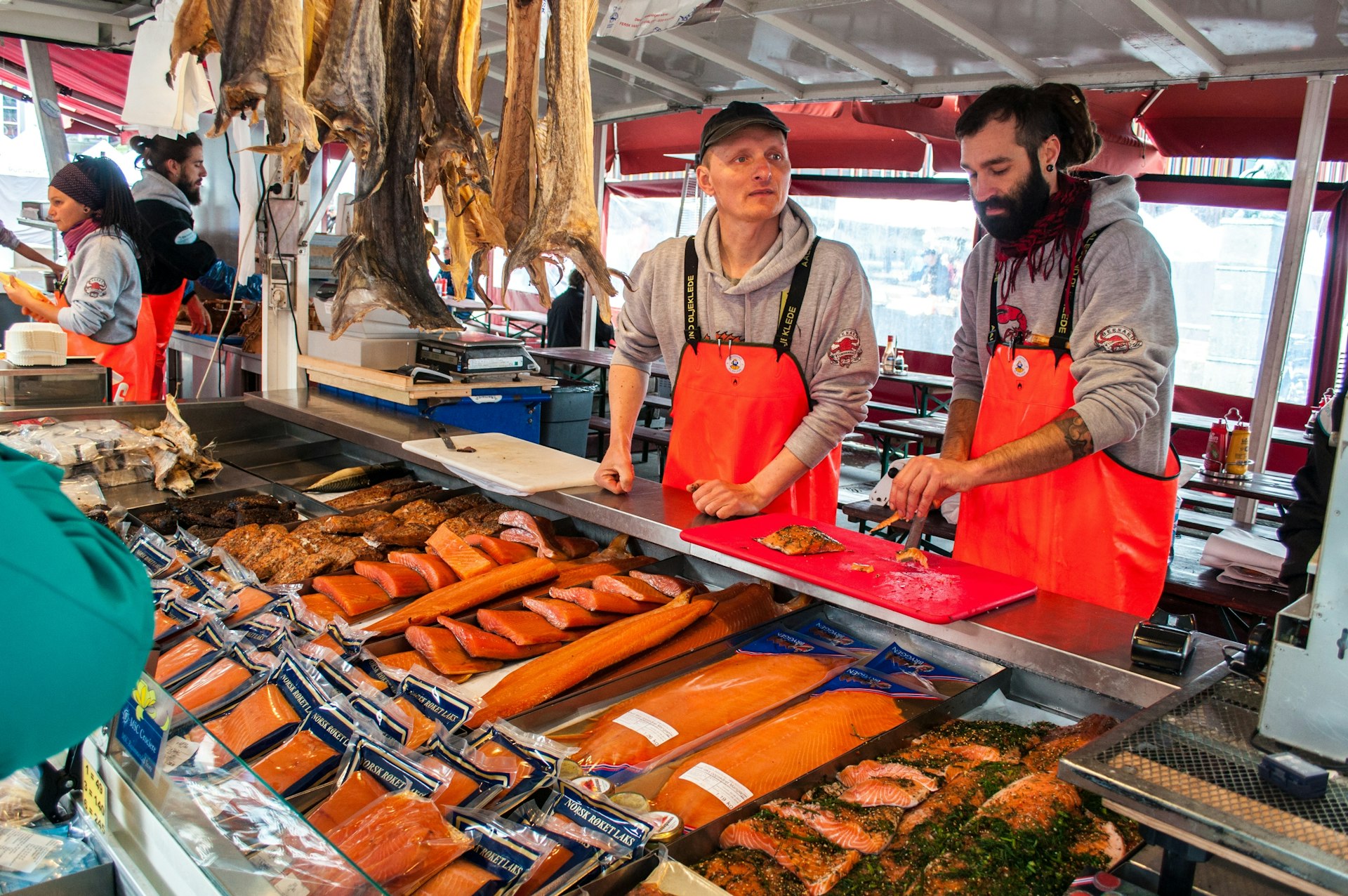
6. Bergen
Best mix of urban attractions and outdoor recreation
Norway’s second-largest city is a charmer, starting with its UNESCO-listed waterfront district, Bryggen, a delightful warren of colorful wooden buildings and narrow alleyways where merchants from the powerful medieval Hanseatic League once held sway. Though framed by mountains – there’s wonderful hiking within easy reach – Bergen is very much a maritime city, as reflected in its vibrant restaurant scene highlighting fresh fish and seafood.
Planning tip: The Bergen Card offers free or discounted admission to many of Bergen’s excellent museums and other attractions, as well as tours and transportation.

7. Geiranger
Best for panoramic fjord views
The UNESCO-listed Geirangerfjord is another of Norway’s most beautiful fjords, with sheer walls, impressive waterfalls, and abandoned farms clinging to high cliffs. The ferry journey between Geiranger and the quieter village of Hellesylt is stunning, as is the land approach to Geiranger from the north on Route 63, Ørnevegen (the Eagle Road), which makes 11 hairpin turns as it winds down the mountainside. Stop at Ørnesvingen, the highest switchback, for panoramic views.
Planning tip: East of Geiranger, Route 63 continues along the north side of the glacial massif. Take the side road from Djupevatn (toll) to the Dalsnibba lookout for a stunning look back towards Geiranger.
8. Ålesund
Best for early 20th-century architecture and design
Regularly voted one of Norway’s most beautiful cities, Ålesund owes its special character to a devastating fire in 1904 that razed the town, leaving 10,000 people homeless. When the city rose from the ashes, it was with an entirely new cityscape in the Jugendstil (Art Nouveau) style, making it unique in Norway. For an incomparable panorama of Ålesund and its magnificent natural surroundings, climb the 418 steps to the Aksla viewpoint, overlooking the city center.
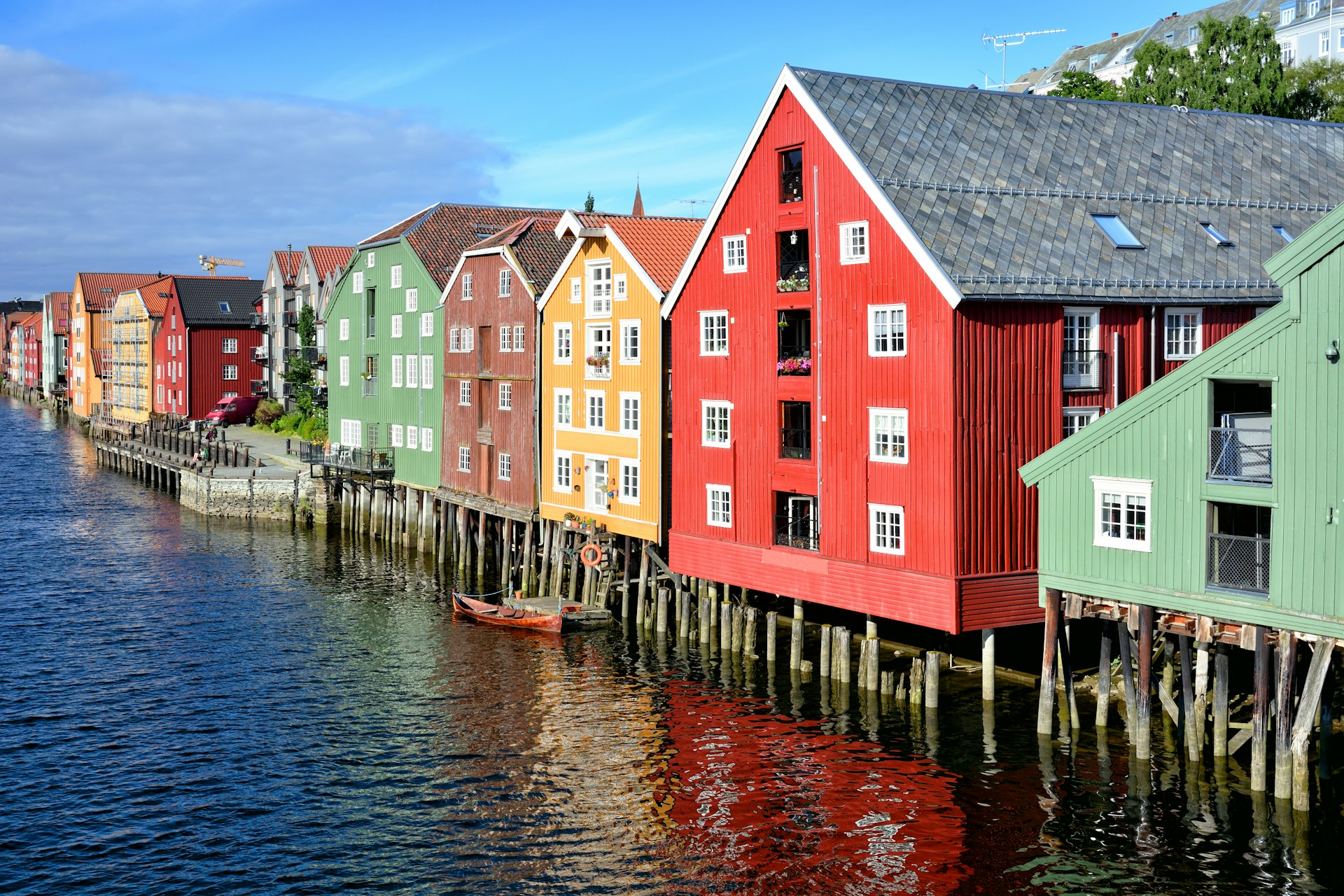
9. Trondheim
Best blend of history and innovation
Norway’s historic Viking capital, Trondheim is a lively university town, a medieval pilgrimage destination, a science and technology hub, a culinary hotspot (it was the European Capital of Gastronomy last year), and so much more. The Nidelva River flows through the city center, lined with colorful warehouses. Rent a kayak or take a sightseeing tour by boat for the best views. Trondheim’s star attraction is Nidaros Cathedral, a medieval masterpiece built over the grave of Norway’s patron saint, King Olav II Haraldsson, while across the river, the 17th-century Kristiansten Fortress played a major defensive role during the Scandinavian wars before being occupied by the Nazis during World War II.
10. Nordland Coast
Best for wild coastal road trips
In a country where gorgeous views are everywhere, Kystriksveien, the coastal road from Steinkjær to Bodø (the European Capital of Culture for 2024), stands out with its seemingly infinite views of mountains rising from the sea, sandy coves, pretty fishing villages, and countless islands including the birdwatching hotspots Vega and Lovund. The whole route stretches 400 miles (650 km) and takes a minimum of four or five days to drive, with several ferry crossings and numerous worthwhile detours along the way. Kystriksveien is also a wonderful cycling destination; guided tours and luggage transport are available.
Planning tip: Ferries along the route use the Autopass system for tolling. If you don’t have a transponder, register an account in the FerryPay system to avoid a surcharge for mailed invoices. Visit www.autopassferje.no for details.

11. Tromsø
Best city for year-round outdoor activities
Located 217 miles (315 kilometers) north of the Arctic Circle, Tromsø is northern Norway’s largest city and unofficial capital. In summer, you can hike, kayak, sauna-hop and savor the city’s urban delights under the midnight sun, while in winter, there are excellent chances of seeing the aurora borealis casting a magical glow overhead as you ski, snowshoe, dogsled and reindeer sled across pristine wintry landscapes. Winter is also the best time for whale watching, whereas summer is the prime season to take a birdwatching cruise in search of puffins and other seabirds.
Local tip: Since 2001 Tromsø has been twinned with Gaza City, a topic which is now being keenly discussed by locals.
12. Svalbard
Best for remoteness and Arctic wildlife
Tromsø not far enough north for you? Then head to Svalbard, an Arctic archipelago located roughly halfway between mainland Norway and the North Pole, and one where Norwegian, Russian and other citizens all inhabit in a visa-free zone. During the polar summer the islands come alive with migratory species such as whales and seabirds. Polar bears and reindeer wander across the landscape year round, while seals and walrus can often be seen hauled out on ice floes or island shores. In winter, the long polar night descends over the archipelago as the only natural light comes from the moon, stars, and the brilliant auroras that frequently dance across the heavens.
Planning tip: Despite its small size, Svalbard’s administrative center, Longyearbyen, has a surprising range of restaurants, making it a good place to sample the flavors of the Arctic.

